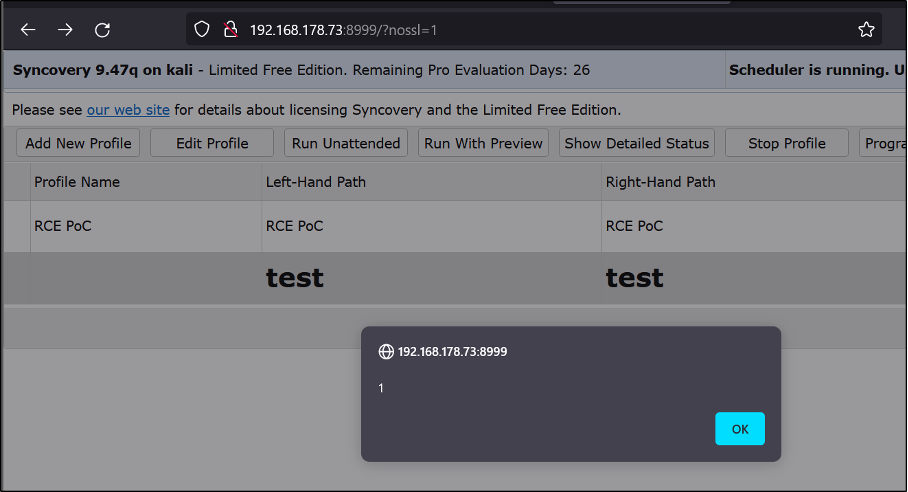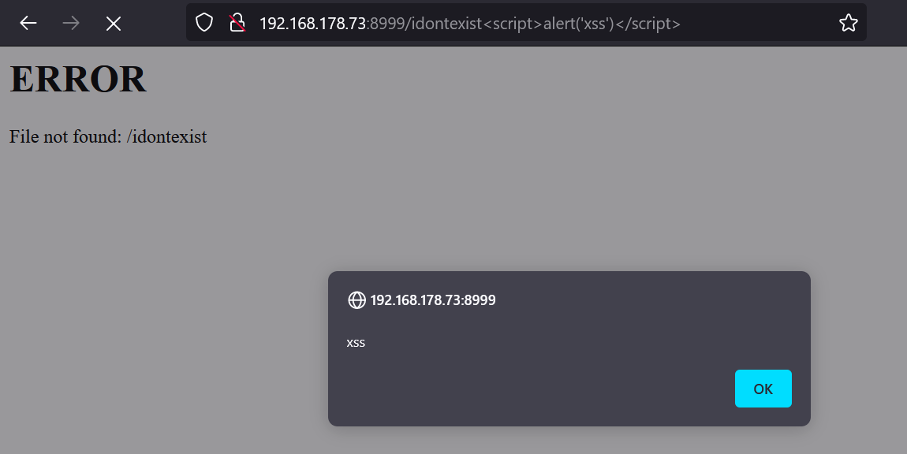
CVE-2022-36536 / CVE-2022-36533 / CVE-2022-36533 / CVE-2022-36534
Multiple vulnerabilities in Syncovery for Linux
Multiple vulnerabilities were found in Syncovery for Linux backup tool. We’ve reported them to the software vendor and they were fixed in version 9.48j. Vulnerable are all versions below v9.48j including all versions of branch 8.
Insecure Session Token Creation (CVE-2022-36536)
Description
Up to Syncovery v9.48j session tokens are generated in an insecure manner:
base64(MM/dd/yyyy HH:mm:ss)
The following screenshot shows the session token after a successful login:
The token can be decoded easily to verify, that the date and time was used for token creation:
Affected Component
Login (post_applogin.php)
Attack Type
Remote
Impact Escalation of Privileges
True
Attack Vectors
Attackers can easily brute-force valid session tokens with a simple script. On success, the attacker has full administrative access to the web GUI.
Reference
https://www.syncovery.com/detailed-version-history/
Discoverer
Stored Cross-Site Scripting vulnerabilities (CVE-2022-36533)
Description
Syncovery up to version 9.48j is vulnerable to stored Cross-site Scripting due to missing output encoding of the profile settings.
A user can store arbitrary JavaScript code in the profile settings that is executed each time the profiles are viewed.
The h1 tags in „LeftPath“ and „RightPath“ are interpreted as HTML and the JavaScript code gets executed as well:
Affected Component
Parameters ProfileName, OriginalProfileName, LeftPath and RightPath of post_profilesettings.php
Attack Type
Remote
Impact Code Execution
True
Attack Vectors
To exploit the vulnerability, an attacker needs access to the application.
Reference
https://www.syncovery.com/detailed-version-history/
Discoverer
Jan Rude (mgm security partners)
Reflected Cross-Site Scripting vulnerabilities (CVE-2022-36533)
Description
Syncovery up to version 9.48j is vulnerable to reflected Cross-site Scripting due to missing output encoding in error pages and status pages.
The reflected XSS can be exploited by crafting a malicious link to an error message:
Affected Component
Default error page
Parameter profile of status.php
Attack Type
Remote
Impact Code Execution
True
Attack Vectors
To exploit the vulnerability, an attacker needs to craft a malicious link.
Reference
https://www.syncovery.com/detailed-version-history/
Discoverer
Jan Rude (mgm security partners)
Authenticated Remote Code Execution (CVE-2022-36534)
Description
Syncovery allows users to execute a command or script before/after running a profile.
Since it is possible to inject arbitrary commands an authenticated attacker can get root access to the host by inserting a crafted payload. This results in a complete compromise of the server running Syncovery.
Example: Insertion of a PHP reverse shell as „Before“ command. Executing this command will open a new connection (reverse shell) to the attacker machine.
The attacker is listening on the port 4444 until the Syncovery host connects to the attacker machine. Since the software is running with root privileges by default, the attacker has root access to the host.
Affected Component
‘Job_ExecuteBefore’ and ‘Job_ExecuteAfter’ parameter in post_profilesettings.php.
Attack Type
Remote
Impact Code Execution
True
Attack Vectors
To exploit the vulnerability, an attacker needs access to the application.
Reference
https://www.syncovery.com/detailed-version-history/
Discoverer
Jan Rude (mgm security partners)
Timeline
2022/07/05 – Identification of the vulnerabilites
2022/07/08 – Informing the vendor about the vulnerabilities
2022/07/18 – CVE Request
2022/08/31 – Release of new Syncovery version which fixes the vulnerabilities
2022/09/06 – Publication







